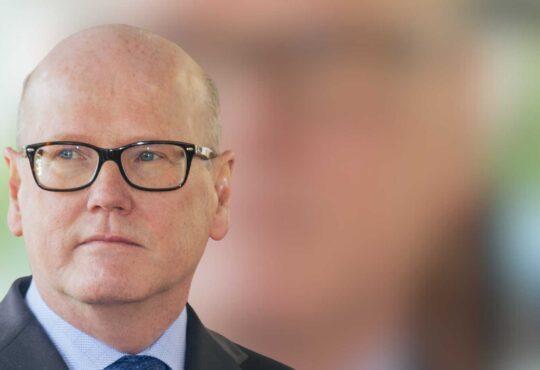
Project Description
Provision of a five-year senior unsecured loan of up to EUR 10 million to ProCredit Bank SA (PCBM) under the SME Competitiveness Programme in the Eastern Partnership for on-lending to eligible micro, small and medium enterprises (MSMEs). In addition to long-term financing, eligible sub-borrowers will receive technical assistance funded by the European Union and grant support in the form of investment incentives upon the completion of their investment projects.
Project Objectives
The SME Competitiveness Programme in the Eastern Partnership is a follow-on facility of the existing FI DCFTA Blended Finance Programme (DCFTA), designed for Armenia, Azerbaijan, Belarus, Georgia, Moldova and Ukraine to support upgrades in micro, small and medium-sized enterprises (MSME) to European Union (EU) standards. The proposed project will enable ProCredit Bank to extend loans for investment purposes to local MSMEs, financing upgrades of technology and equipment necessary to meet EU standards in terms of product quality, health and safety measures and environmental preservation and thus will help businesses to become greener and more competitive.
Transition Impact
ETI score: 75
“Competitive”: ProCredit Bank will further expand its MSME portfolio with a focus on financing investments leading to compliance with EU directives, facilitating Moldovan MSMEs increased competitiveness.
“Resilient”: ProCredit Bank will be expected to maintain adequate portfolio quality.
Client Information
BC PROCREDIT BANK SA
ProCredit Bank SA (PCBM) is the 5th largest bank in Moldova (out of 11) with total assets of EUR 300 million and market share of 4.7% as of the end of 2022. It has a stable financial position, proven track record, and a viable business model focused on servicing small and medium-sized businesses.
EBRD Finance Summary
EUR 10,000,000.00
Total Project Cost
EUR 10,000,000.00
Additionality
Key sources of additionality under the project are (i) Financing structure (long-term tenor in support of investments by Moldovan MSMEs) and (ii) Knowledge, innovation and capacity building (technical assistance under the programme to the banks and MSMEs will support timely realisation of EU-compliant investments in Moldova).
Environmental and Social Summary
Categorized FI (ESP 2019). ProCredit Bank will be required to continue to comply with Performance Requirements 2, 4 & 9, the EBRD’s Environmental and Social Procedures for Corporate Loans, SME and Micro Loans and to continue to submit annual environmental and social reports to the Bank.
The project is consistent with the EBRDs Green Economy Transition (GET) approach, aiming to achieve 70% GET share.
Technical Cooperation and Grant Financing
MSME sub-borrowers will benefit from financial incentives (up to 15 per cent of the lower of sub-loan disbursed amount or investment cost) for eligible sub-projects, while ProCredit Bank will receive technical assistance from dedicated consultants towards investment projects preparation and implementation.
TC and non-TC source: European Union Neighbourhood Investment Platform.
Company Contact Information
[email protected]
+373 22 27 07 07
https://www.procreditbank.md/
PSD last updated
22 Mar 2023
Understanding Transition
Further information regarding the EBRD’s approach to measuring transition impact is available here.
Business opportunities
For business opportunities or procurement, contact the client company.
For business opportunities with EBRD (not related to procurement) contact:
Tel: +44 20 7338 7168
Email: [email protected]
For state-sector projects, visit EBRD Procurement:
Tel: +44 20 7338 6794
Email: [email protected]
General enquiries
Specific enquiries can be made using the EBRD Enquiries form.
Environmental and Social Policy (ESP)
The ESP and the associated Performance Requirements (PRs) set out the ways in which the EBRD implements its commitment to promoting “environmentally sound and sustainable development”. The ESP and the PRs include specific provisions for clients to comply with the applicable requirements of national laws on public information and consultation as well as to establish a grievance mechanism to receive and facilitate resolution of stakeholders’ concerns and grievances, in particular, about environmental and social performance of the client and the project. Proportionate to the nature and scale of a project’s environmental and social risks and impacts, the EBRD additionally requires its clients to disclose information, as appropriate, about the risks and impacts arising from projects or to undertake meaningful consultation with stakeholders and consider and respond to their feedback.
More information on the EBRD’s practices in this regard is set out in the ESP.
Integrity and Compliance
The EBRD’s Office of the Chief Compliance Officer (OCCO) promotes good governance and ensures that the highest standards of integrity are applied to all activities of the Bank in accordance with international best practice. Integrity due diligence is conducted on all Bank clients to ensure that projects do not present unacceptable integrity or reputational risks to the Bank. The Bank believes that identifying and resolving issues at the project assessment approval stages is the most effective means of ensuring the integrity of Bank transactions. OCCO plays a key role in these protective efforts, and also helps to monitor integrity risks in projects post-investment.
OCCO is also responsible for investigating allegations of fraud, corruption and misconduct in EBRD-financed projects. Anyone, both within or outside the Bank, who suspects fraud or corruption should submit a written report to the Chief Compliance Officer by email to [email protected]. All matters reported will be handled by OCCO for follow-up. All reports, including anonymous ones, will be reviewed. Reports can be made in any language of the Bank or of the Bank’s countries of operation. The information provided must be made in good faith.
Access to Information Policy (AIP)
The AIP sets out how the EBRD discloses information and consults with its stakeholders so as to promote better awareness and understanding of its strategies, policies and operations following its entry into force on 1 January 2020. Please visit the Access to Information Policy page to find out what information is available from the EBRD website.
Specific requests for information can be made using the EBRD Enquiries form.
Independent Project Accountability Mechanism (IPAM)
If efforts to address environmental, social or public disclosure concerns with the Client or the Bank are unsuccessful (e.g. through the Client’s Project-level grievance mechanism or through direct engagement with Bank management), individuals and organisations may seek to address their concerns through the EBRD’s Independent Project Accountability Mechanism (IPAM).
IPAM independently reviews Project issues that are believed to have caused (or to be likely to cause) harm. The purpose of the Mechanism is: to support dialogue between Project stakeholders to resolve environmental, social and public disclosure issues; to determine whether the Bank has complied with its Environmental and Social Policy or Project-specific provisions of its Access to Information Policy; and where applicable, to address any existing non-compliance with these policies, while preventing future non-compliance by the Bank.
Please visit the Independent Project Accountability Mechanism webpage to find out more about IPAM and its mandate; how to submit a Request for review; or contact IPAM via email [email protected] to get guidance and more information on IPAM and how to submit a request.





